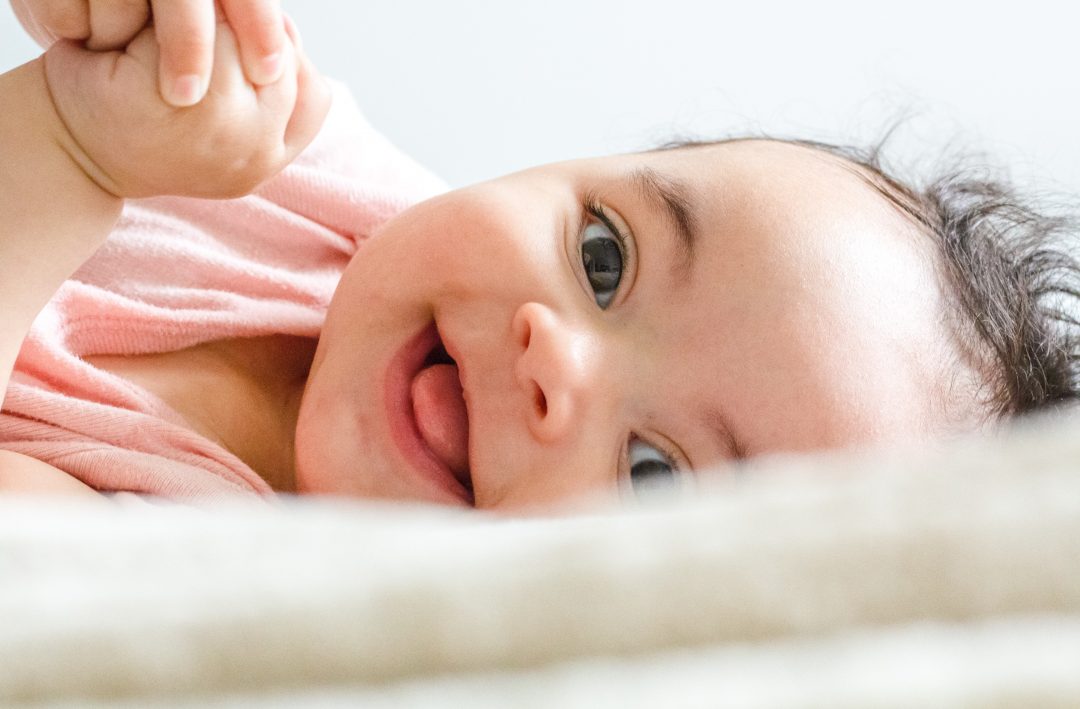We need more specialist parent-infant relationship teams, to build better mental health for babies and their parents
Blog

In this blog for Maternal Mental Health Awareness Week, parents from our region explain why they’ve chosen to get involved with a new project which aims to increase access to specialist parent-infant relationship teams.
Parent-infant relationships are central to maternal and infant mental health. Services can promote the development of positive parent-infant relationships and offer support when difficulties emerge.
Specialised parent-infant relationship teams are among those services that can play a critical role in promoting positive parent infant relations and mental health of babies and their parents.
However, many regions are underserved and parents simply don’t have access to this important support. For example, in the North East and North Cumbria region, there’s just one specialised team that is only available to families living in the Newcastle area.
To help address these gaps, a new project led by Dr Bronia Arnott (Newcastle University) and Dr Karen Bateson (Independent Clinical Psychologist), in collaboration with the Parent Infant Foundation, seeks to co-develop a tool to support commissioning of specialised parent-infant teams in our region and beyond, meaning that more families can get access to the mental health support they need.
Involving parents in our research
The project is supported by a Public Involvement and Community Engagement (PICE) parent group, who have all had babies in the last five years.
The group have shared their personal experiences of accessing parent-infant support and their own mental health through a variety of creative means including poems, storyboards, and a digital interactive board.
Their stories will be used to shape anonymous case studies of exemplar families who may need parent-infant relationship support and parent-infant mental health services.
The case studies will then be used in workshops with commissioners to ensure that parent voices are included.
Why parents wanted to get involved
Some of the parent group members have confidentially shared their motivations for being involved in the PICE group.
Mam H said: “Anxiety is a bully that I’ve lived with for 20 years. One of the ways I’ve found to counteract this is involvement in mental health research, notably the parent-infant relationship team project.”
Mam K said: “After suffering with severe Postnatal Depression and Postpartum Psychosis, I found that as part of my recovery I wanted to help others who were in the awful place I had been.”
How parents felt about sharing their stories
Some also talked about what it was like to share their stories with the research team:
Mam H said: “Discussing my experience to improve services for others brings light and positivity to a particularly difficult and painful period of my life.”
Mam G said: “Being a part of the parent-infant teams project has given me a voice, self-assurance and kept me engaged which I hope will end up resulting in helping others.”
What parents said about accessing services
The PICE group also shared their experiences of mental health and accessing services:
Mam G said: “I was fortunate to have received help from a parent-infant team, and my health visitor. By sharing my experience of these services, I want other mothers who may be experiencing hardship to know that they do not need to suffer in silence.”
Mam K said: “I was admitted to a Mother and Baby Unit which ultimately saved my life. Following my discharge, I was supported by the Crisis Team, Mental Health Team and Health Visitor. Although I was very unlucky to have suffered with these illnesses, I am so thankful that they helped me gain confidence and to help others.”
The research team hope that by involving these parents in our PICE group, it can ensure that future services address the mental health needs of mums and babies.
Help us to help you shape these future services
If you are nvolved in commissioning family/mental health support services in any way, we would love to hear from you. We’d especially like to hear from those working across the Cumbria region, or with hard to reach groups. Please email [email protected] for more information.
This project has been funded by the NIHR Applied Research Collaboration (ARC) North East and North Cumbria (NENC) via our Open Funding Competition 2020.